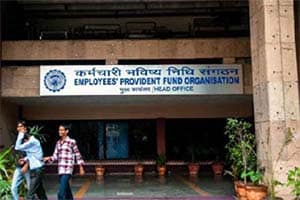Buckling to pressures from the public and labour unions, the government on Tuesday scrapped its controversial new regulation that put restrictions on withdrawal of employees provident fund (EPF) corpus till a member attained 58 years of age.
Was the government right in the first place in coming out with the regulations which was initially notified in February and subsequently deferred twice before it was finally dumped? What lessons would the Centre have learnt from the ignominy of having to roll back its move, especially after it comes close on the heels of a similar roll-back on it proposal ot tax EPF that was announced in the budget?
Experts dealing with old-age income security and financial advisors believe that while the intent of the government may have been correct, the method to achieve the goal was flawed. They feel that a move like this should have been preceded with measures to educate the public on the issue and a widespread public discussion to build consensus on the measure.
The proposed norms notified by the labour ministry (now scrapped) had said if a member is below 58 years, and employed, he or she will be allowed to to withdraw only own contributions lying in the fund and the accrued interest on that. Thus, the member would not be allowed to withdraw the employer’s contribution and the interest accrued until attaining the retirement age for provident fund purposes set at 58 years.
“There is nothing wrong per se with the policy on restricting EPF withdrawals of part of the corpus. The government should have made efforts to educate workers on the benefits of having the money in the corpus for the long-term. Public communication on such issues has to be effective. I did not see any advertisement or publicity material to educate people before the measure was announced,” A Vishwanathan, former Central Provident Fund Commission (CPFC), who had headed the Employee’s Provident Fund Organisation (EPFO), told FeMoney.
Manoj Nagpal, CEO, Outlook Asia Capital, a financial planner, agreed with Vishwanathan. “The government’s intention cannot be questioned. The intent was good. However, there was need for a wider public consultation on the issue before the move to restrict EPF withdrawals was notified,” Nagpal said. He, however, added that the various agitations, some which turned violent, clearly showed that the public mood was not in favour of the move.
Nagpal said such moves should not be made applicable retrospectively, as was done, since it may disrupt a person’s financial plan. “A member may have planned to withdraw the money for a specific purpose – a marriage in the family or building a house. But sudden restrictions come up. That will always create a problem. If at all, such rules should come into force prospectively,” Nagpal said.
Vishwanthan said the government’s intent was to ensure that members retain some money at retirement to lead a decent life. “EPF money is supposed to be corpus to ensure that a person is not financially helpless on retirement. However, the reality is that many people who withdraw the money mid-career spend the money for consumption or travel.”
